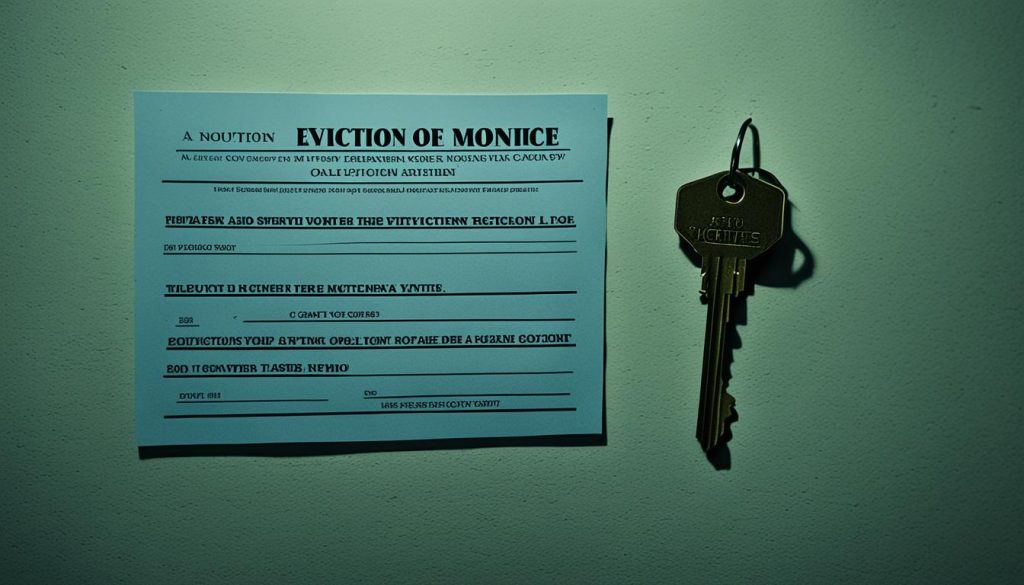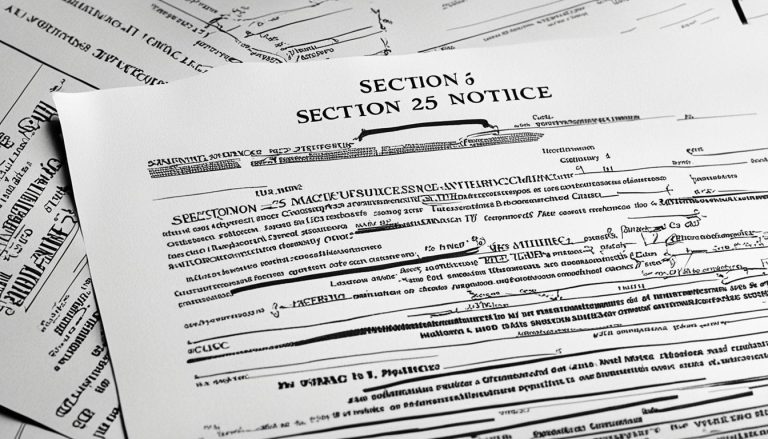Are you aware of the power you hold as a tenant or landlord when it comes to terminating a fixed-term tenancy agreement? The break clause in a tenancy agreement can be your key to unlocking early exit options, but do you truly understand its implications? Delve into the world of break clauses and discover how to safeguard your rights and responsibilities as a tenant or landlord.
A break clause in a tenancy agreement allows either the landlord or the tenant to terminate the contract early, giving an option to end a fixed-term tenancy before its expiry. This provides flexibility for both parties. The break clause should clearly state when the notice can be served and how much notice is required. Failing to follow the terms of the break clause could result in the landlord taking legal action to claim back unpaid rent and the tenant losing their deposit.
What is a Break Clause in a Tenancy Agreement?
A break clause is a contractual term in a tenancy agreement that allows either the landlord or the tenant to terminate the agreement before the end of the fixed term. This provides flexibility for both parties, as it enables them to exit the tenancy early if their circumstances change.
Definition of a Break Clause
The break clause should specify the notice period required and the stage of the tenancy when it can be exercised. Break clauses are not compulsory but can be negotiated and included in the tenancy agreement if both parties agree.
Importance for Landlords and Tenants
For landlords, a break clause can provide the opportunity to end a fixed-term tenancy agreement early if the tenant fails to meet their obligations or if the landlord needs to regain possession of the property. For tenants, a break clause offers increased flexibility to terminate the tenancy agreement if their circumstances change, such as a job relocation or the need for a larger or smaller property.
Flexibility and Early Termination Options
The inclusion of a break clause in a tenancy agreement, whether for a fixed term or a periodic tenancy, can be an important consideration for both landlords and tenants. It provides the opportunity for early termination and can be a valuable tool in ensuring the flexibility of the rental arrangement.

When is a Break Clause Applicable?
When it comes to tenancy agreements, the break clause can be a valuable provision for both landlords and tenants. This clause allows either party to terminate the contract early, providing much-needed flexibility in the face of changing circumstances. Break clauses are particularly common in fixed-term tenancy agreements, such as 12-month or 24-month contracts, where they offer an option for early termination.
Fixed-term Tenancy Agreements
In a fixed-term tenancy agreement, the break clause enables the landlord or tenant to end the tenancy before the specified end date. The terms of the break clause, including the required notice period and the stage of the tenancy when it can be exercised, should be clearly outlined in the tenancy agreement. This provides both parties with the opportunity to adjust their plans if their needs or situation changes during the course of the agreement.
Periodic Tenancy Agreements
Break clauses can also be included in periodic tenancy agreements, which typically continue on a rolling basis, often monthly or weekly. While these agreements do not have a fixed end date, the break clause can still be utilised to facilitate an early termination of the tenancy. As with fixed-term agreements, the terms of the break clause should be explicitly defined in the tenancy contract.
Regardless of the type of tenancy agreement, the break clause conditions must be carefully considered and adhered to by both the landlord and tenant to ensure a smooth and lawful termination of the tenancy.

break clause in tenancy agreement
The break clause in a tenancy agreement outlines the specific conditions and terms under which it can be invoked. This includes the required notice period for terminating the tenancy early. Typically, the notice period is around 2 months, but the exact duration may vary depending on the agreement.
Conditions and Terms of a Break Clause
The break clause should clearly stipulate the circumstances under which it can be exercised, such as the stage of the tenancy when it can be invoked and any additional requirements or limitations. This ensures both the tenant and the landlord understand their respective break clause responsibilities. Negotiating the precise terms and conditions of the break clause is an important part of the tenancy agreement process.
Notice Period Requirements
Adhering to the specified notice period to end tenancy is crucial when activating the break clause. Failing to provide the correct amount of notice, as outlined in the agreement, could have serious consequences. Both the tenant and the landlord must be mindful of the notice period requirements to ensure a smooth and lawful termination of the tenancy.
Implications of Breaching the Clause
If the terms of the break clause are not followed correctly, such as by not providing the required notice or ensuring rent payments are up to date, it can result in significant consequences of breaking tenancy agreement. The landlord may take legal action to claim any unpaid rent, and the tenant could potentially lose their tenancy deposit. Understanding the implications of breaching the clause is important for both parties to avoid such unfavourable outcomes.
Ending a Tenancy Without a Break Clause
If a tenancy agreement does not contain a break clause, the tenant may not be able to terminate the agreement early unless the landlord agrees. In such cases, the tenant should communicate with the landlord to explain their situation and request an early termination.
Communicating with the Landlord
When the tenant does not have the option of a break clause to end the tenancy, they should approach the landlord directly. The tenant should explain their reasoning and circumstances for wishing to terminate the agreement before the end of the fixed term. The landlord may be willing to agree to an early termination, but the tenant may still be responsible for paying rent until the end of the agreed term or until a new tenant is found.
Early Termination Fees and Costs
Even if the landlord agrees to an early termination of the tenancy, the tenant may still be liable for additional fees and costs. This could include rent until the end of the fixed term or until a new tenant is secured, as well as any administrative fees associated with the early termination. The tenant should carefully review the tenancy agreement and discuss the financial implications with the landlord.
Consequences of Abandonment
Abandoning the property without the landlord’s consent can have serious consequences for the tenant. This could result in legal action being taken against the tenant, as well as the loss of the tenancy deposit. The tenant has a legal obligation to fulfil the terms of the tenancy agreement, even if a break clause is not present.

Conclusion
In summary, a break clause in a tenancy agreement offers flexibility for both landlords and tenants by allowing them to terminate the contract early if their circumstances change. The terms of the break clause, including the notice period and the stage of the tenancy when it can be exercised, should be clearly outlined in the agreement. Failing to follow the break clause’s terms could result in legal action or the loss of the tenancy deposit.
Understanding the rights and responsibilities associated with a summary of break clause in tenancy agreement is crucial for both parties to ensure a smooth and lawful termination of the tenancy agreement. The key takeaways for tenants and landlords are to be aware of the break clause’s provisions and to follow the correct procedures when exercising it.
The importance of understanding break clause terms cannot be overstated. By familiarising themselves with the break clause, tenants and landlords can navigate the early termination process with confidence, minimising the potential for disputes and ensuring a positive outcome for all involved.
FAQ
When can a break clause be used?
Break clauses are typically used in fixed-term tenancy agreements, such as 12-month or 24-month contracts, to provide an option for early termination. They can also be included in periodic tenancy agreements, which continue on a rolling basis, usually monthly or weekly.
What are the terms of a break clause?
The break clause should specify the notice period required and the stage of the tenancy when it can be exercised. Failing to follow the terms of the break clause could result in the landlord taking legal action to claim back unpaid rent and the tenant losing their deposit.
Can both landlords and tenants request a break clause?
Yes, both tenants and landlords can request the inclusion of a break clause in a tenancy agreement. Tenants may seek a break clause for increased flexibility, while landlords may use it to ensure the tenant meets their expectations.
What happens if there is no break clause in the tenancy agreement?
If a tenancy agreement does not contain a break clause, the tenant may not be able to terminate the agreement early unless the landlord agrees. Abandoning the property without the landlord’s consent can have serious consequences, including legal action and the loss of the tenancy deposit.






